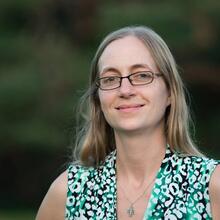A Reflection for the Memorial of St. Thomas Aquinas, Priest and Doctor of the Church
Find today’s readings here.
Therefore, God is not ashamed to be called their God, for he has prepared a city for them. (Heb 11:16)
Faith can be difficult for information-age people to understand. Every day, we are bombarded with messaging from celebrities, politicians or salesmen who urge us to trust them. We have learned to be cautious about evidence and expertise. Living in this kind of world, religious sermons may sometimes feel like another sales pitch. Is the Good News fake news? The British philosopher Bertrand Russell declared that he “had no need of that hypothesis,” referring to belief in God. From a certain point of view, that might seem like an admirably level-headed approach.
Russell was smarter than the average bear, but not nearly as brilliant as St. Thomas Aquinas, whom we remember on this day. St. Thomas was as methodical and grounded a thinker as ever lived. In every argument, he scrupulously examines competing theories, along with every bit of counterevidence that he can find. He was clear, breathtakingly consistent, and also a man of deep religious faith. He did not consider that these were at odds. “By faith,” he wrote in the Summa Theologica, “we hold many truths about God, which the philosophers were unable to discover by natural reason” (ST II.II art.8, reply to 2). Faith does not supplant our God-given reason. Rather, it offers us certain truths that we would be unable to work out for ourselves.
Human beings are not just fleshy computers. Our beliefs guide our actions, but our experiences and emotions also shape our beliefs and our broader perspective on the world.
St. Thomas understood that there was a complex relationship between people’s beliefs and the way they lived their lives. Human beings are not just fleshy computers. Our beliefs guide our actions, but our experiences and emotions also shape our beliefs and our broader perspective on the world. Everyone believes things that they cannot definitively confirm, and in this sense, a life of faith is not less rational than one more fully rooted in things that can be seen and tested. Faith does, however, have a kind of radical openness, which may be alarming to a person who craves the security of a world that is fully classified and controlled. In submitting to God’s will, believers must accept great uncertainties. We cannot know what God might choose to do with us.
This is deeply unsettling. But this radical openness also paves the way to something richer and better than the human mind can conceive. In today’s first passage, we hear how Abraham, once a childless sojourner in a strange land, became the father of many nations and peoples, with descendants “as numerous as the stars in the sky and as countless as the sands on the seashore.” His faith was so great that he was willing to sacrifice everything, including his own son. This was surely difficult, but it was not irrational. He recognized that God’s promises could be trusted, and that belief shaped his life, which became larger and more consequential than he could possibly have imagined.
Jesus’ disciples, in the Gospel passage, were weaker than Abraham. Sitting in a boat with God Himself, they were nevertheless alarmed by some stormy weather. As fishermen, they understood the destructive power of storms, and they craved these worldly securities: gentle breezes, calm waters. We may chuckle a bit at their naïve fears, but so often we ourselves are in that same boat, begging our Lord to soothe the minor anxieties and insecurities of everyday life. He knows our weakness, and his power over wind and wave is very real. But as servants, we will be more fruitful if we can trust our Creator, master our fear, and allow God to remake us into the people he wants us to be. The world we see around us is not, in any case, our permanent home. No earthly comfort will truly content us, because, like Abraham, we are strangers and aliens here, occasionally glimpsing the city that God has prepared for us.
He was not ashamed to be known as the God of Abraham. If we trust him, we too can be acknowledged as the children of the living God.








